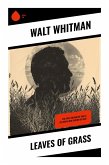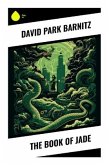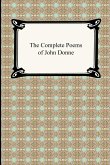The Poetical Works of John Donne encapsulates the essence of metaphysical poetry, showcasing a collection of the playwright and poet's most significant creations. Donne's adept handling of complex themes such as love, death, and spirituality is illuminated through his innovative use of language, metaphors, and rhythm. His poems defy conventional dichotomies, blending the intellectual with the emotional and the sacred with the profane, thereby providing a rich tapestry that invites analysis and contemplation. Within this volume, readers encounter deeply personal reflections enveloped in intricate structures, illustrating the tensions and harmonies that characterize the human experience. John Donne (1572-1631) stands as a pivotal figure in the English Renaissance, a poet whose diverse background-ranging from his Catholic faith to his experiences in both the court and church-undoubtedly influenced his poetic voice. His tumultuous life, marked by personal loss and the struggles of social mobility, shaped a distinctive perspective that permeates his works. As a cleric and an intellectual, Donne bridged the gap between the scholastic and the poetic, allowing him to explore profound philosophical inquiries within his verse. This collection is essential for both casual readers and scholars alike. Donne's unique ability to intertwine the personal with the universal resonates through centuries, making his work not only relevant but also pivotal in understanding the evolution of English poetry. Those who approach this volume will find themselves immersed in an exploration of existential questions that remain significant today.
Bitte wählen Sie Ihr Anliegen aus.
Rechnungen
Retourenschein anfordern
Bestellstatus
Storno








